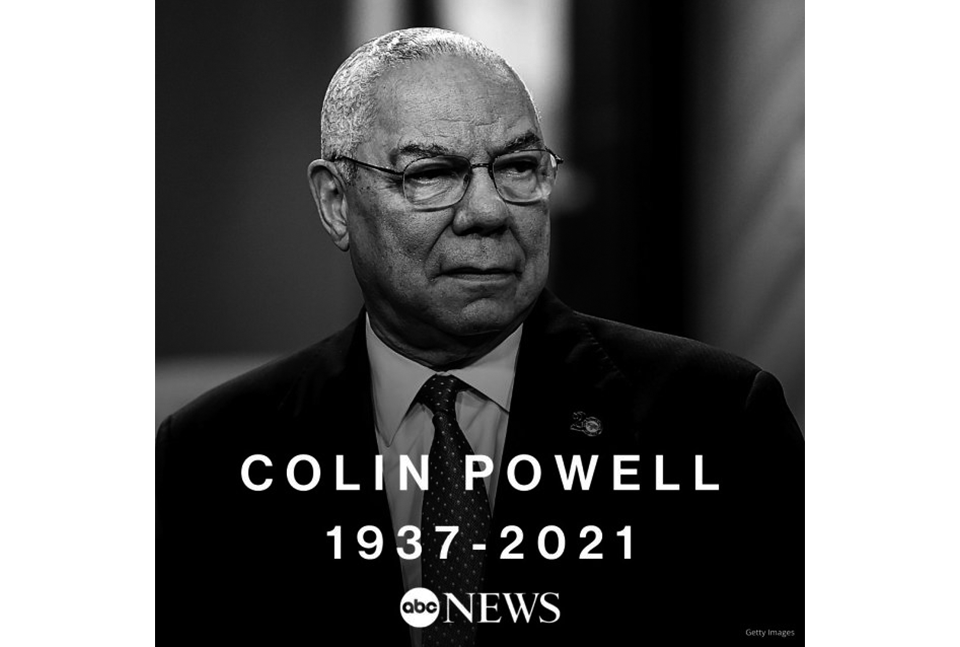- 如有疑问,请联系电邮
- customer@ihealth66.com
USNEWS:维生素B和肺癌之间有联系吗?

USNEWS:睡眠和肺癌之间有联系吗-褪黑素真有大作用!
2019年4月11日
最新临床试验:奥西莫替尼治疗IIIb-IV期或复发性非小细胞肺癌伴EGFR外显子20插入突变
2019年4月15日By Kathleen Hall
你可能已经读过最近关于维生素B摄入量与肺癌有关的分析的新闻标题。如果你服用维生素B补充剂,你可能想知道它对你意味着什么。以下是你需要知道的。
什么是维生素B ?
维生素B主要有8种:B1(硫胺素)、B2(核黄素)、B3(烟酸)、B5(泛酸)、B6、B7(生物素)、B12和叶酸。最近的研究结果发表在《临床肿瘤学杂志》(Journal of Clinical Oncology)上,主要是研究肺癌与B6和B12之间的关系。
维生素B6有助于保持神经和血管的健康,而维生素B12在怀孕和婴儿期的新陈代谢、免疫功能和大脑发育中发挥着关键作用。它们都存在于动物食品中,你也可以从水果(除了柑橘)、土豆和其他淀粉类蔬菜中获得B6。
根据美国国立卫生研究院(National Institutes of Health,NIH)的数据,大多数美国人从食物中获得了足够的维生素B。不过,维生素B补充剂仍然很受欢迎;尽管缺乏科学数据支持这一益处,但它们经常被宣传为增强能量。
大多数复合维生素含有美国推荐的成人膳食维生素B,即2.4微克B12和1.3至1.7毫克B6(取决于你的年龄和性别)。另一方面,维生素B补充剂的剂量要高得多。例如,天然制造的复合维生素含有2毫克B6和6毫克B12,而天然制造的B6补充剂含有100毫克B6 (RDA的5000 %),而B12补充剂含有500毫克B6 (RDA的833%)。
重要的研究
这项分析是基于维生素和生活方式(或生命周期)的队列数据得出的:2000年至2002年间招募了大约7.7万名年龄在50岁至76岁之间的成年人。华盛顿大学弗雷德·哈钦森癌症研究中心的研究人员以补充剂使用者为目标,以确定补充剂的使用与疾病之间是否存在关联。他们收集了关于维生素和补充剂使用情况的信息,要求参与者回忆他们服用了什么,剂量是多少(依赖于参与者的回忆和补充剂使用情况的报告是这项研究的一个限制)。研究人员继续分析重要数据和队列随访数据。
8月的分析发现,人服用维生素B6的最高类别(超过20毫克每天超过10年)和B12(超过55毫克每天超过10年)有一个双重的增加患肺癌的风险相比,西奥多·Brasky说,他是俄亥俄州立大学综合癌症中心—阿瑟·g·詹姆斯肿瘤医院和理查德•j•Solove研究所的维生素B研究的首席研究员和流行病学家(布拉斯基没有报告任何财务或其他利益冲突)。此外,布拉斯基和他的同事发现,与不服用这些补充剂的吸烟男性相比,吸烟并服用高剂量维生素B6或B12的男性患肺癌的风险要高出三到四倍。他们在女性和非吸烟者中没有发现类似的关联。
这是什么意思?
需要指出的是,VITAL是一项观察性研究,并不能证明因果关系。需要更多的研究来重复和确认这些发现。
也就是说,研究结果提出了一些有趣的问题,关于服用高剂量补充剂,以及它们对肺癌(和其他)的发展是否有保护作用或潜在的有害影响。
肺癌是男性和女性最大的癌症杀手;德克萨斯大学西南医学中心(UT southwest Medical Center)教授约翰·明纳(John Minna)博士说,死于前列腺癌的人比死于乳腺癌、前列腺癌和结肠癌的人加起来还要多。他说:“我们知道,50%的肺癌发生在10到20年前戒烟的人身上。这些人患肺癌的风险仍然在增加,而且这种风险可能会持续吸烟者的余生。”因此,生命分析的背景很重要:我们能否找到预防肺癌的方法(例如,通过服用补充剂),或者证明某些东西与患癌症的风险相关?
Minna说,至关重要的一点是,人们在服用维生素的时候,都以为这是在帮助自己。“他们认为自己在做一些有益健康的事情,然而,服用高剂量维生素B补充剂的男性吸烟者患肺癌的几率大大增加。”这种风险的数据增加是显著的。Minna说,如果我们能预防与吸烟者服用高剂量B族维生素有关的肺癌的相同比例,就能对这种疾病产生重大影响。
布拉斯基说,没有理由相信维生素B本身会导致癌症,而且由于它们是水溶性的,你可以通过尿液排出多余的维生素B。它们不会在你体内堆积。然而,调查显示似乎在吸烟的情况下,它们可能会促进肺癌的发展,原因我们还无法解释。
底线
布拉斯基说,如果你是一个服用维生素B的吸烟者,又担心肺癌,你最好的办法就是戒烟。“吸烟会导致肺癌和许多其他疾病,”他说。
与此同时,Minna补充说,根据VITAL的研究结果,他建议吸烟的男性不要服用维生素B补充剂,尤其是因为我们大多数人都通过食物和每日服用多种维生素获得了足够的维生素B。
YOU MAY HAVE READ THE news headlines about a recent analysis that linked vitamin B intake to lung cancer. If you take vitamin B supplements, you may wonder what it means for you. Here’s what you need to know.
What Are B Vitamins?
There are eight essential B vitamins: B1 (thiamine), B2 (riboflavin), B3 (niacin), B5 (pantothenic acid), B6, B7 (biotin), B12 and folic acid. The recent findings, published in the Journal of Clinical Oncology in August, focused on the link between lung cancer and B6 and B12.
Vitamin B6 helps keep nerves and blood vessels healthy, while vitamin B12 plays a critical role in metabolism, immune function and brain development in pregnancy and infancy. Both are found in animal foods, and you can also get B6 from fruits (except citrus), as well as potatoes and other starchy vegetables.
According to the National Institutes of Health, most people in the U.S. get sufficient amounts of B vitamins from food. Still, vitamin B supplements are popular; they’re often marketed as energy-boosting, despite the lack of scientific data to support this benefit.
Most multivitamins contain the U.S. Recommended Dietary Allowance for adults for B vitamins, which is 2.4 micrograms of B12 and 1.3 to 1.7 milligrams of B6 (depending on your age and gender). Vitamin B supplements, on the other hand, pack much higher doses. For example, Nature Made multivitamins have 2 mg of B6 and 6 mcg of B12, while a Nature Made B6 supplement has 100 mg of B6 (5,000 percent of the RDA), and a B12 supplement has 500 mcg (8,333 percent of the RDA).
The VITAL Study
The new analysis is based on data from the Vitamins and Lifestyle, or VITAL, cohort: about 77,000 adults ages 50 to 76 who were recruited between 2000 and 2002. Researchers at Fred Hutchinson Cancer Research Center at the University of Washington targeted supplement users to determine if there was any association between supplement use and disease. They collected information about vitamin and supplement usage by asking participants to recall what they took and at what doses (relying on participants’ recall and reporting of supplement usage is one limitation of the study). Researchers continue to analyze data from VITAL and follow-up with the cohort.
The August analysis found that men who were taking the highest category of vitamin B6 (more than 20 milligrams per day over 10 years) and B12 (more than 55 micrograms per day over 10 years) had a two-fold increase in risk of lung cancer compared with non-users, says Theodore Brasky, lead researcher on the vitamin B analysis and an epidemiologist at The Ohio State University Comprehensive Cancer Center – Arthur G. James Cancer Hospital and Richard J. Solove Research Institute. (Brasky reports no financial or other conflicts of interest.) Furthermore, Brasky and his colleagues discovered that men who smoked and took these high doses of vitamin B6 or B12 had a three to four times greater risk of developing lung cancer relative to men who smoked and did not take these supplements. They found no similar association in women or in people who were not smokers.
What Does it Mean?
It’s important to point out that VITAL was an observational study and does not prove cause and effect. Additional studies are necessary to replicate and confirm these findings.
That said, the findings raise interesting questions about taking high doses of supplements and whether they have a protective or potentially harmful effect on the development of lung (and other) cancers.
Lung cancer is the biggest cancer killer in men and women; it kills more people than breast, prostate and colon cancer combined, says Dr. John Minna, a professor at UT Southwestern Medical Center. “We know that 50 percent of all lung cancers occur in people who quit smoking 10 to 20 years ago. These people are still at increased risk for lung cancer, and this risk probably persists for the rest of the smoker’s life.” So, the context of the VITAL analysis is important: Can we find ways to prevent lung cancer (for example, by taking supplements), or prove that something is an associated risk for developing cancer?
The major takeaway from VITAL is that people are taking vitamins under the assumption that they’re helping themselves, Minna says. “They think they are doing something healthy, yet men smokers who take high doses of vitamin B supplements greatly increase their chance of developing lung cancer.” This increase in risk is significant. Minna says if we could preventthe same percent of lung cancers that are associated with smokers taking high doses of B vitamins, it could have a major impact on the disease.
There’s no reason to believe that B vitamins cause cancer on their own, Brasky says, and since they’re water soluble, you excrete any excess through your urine. They don’t accumulate in your body. However, it seems that in the presence of smoking, they may promote the development of lung cancer for reasons we can’t yet explain.
The Bottom Line
Brasky says that if you’re a smoker who takes B vitamins and you’re concerned about lung cancer, your best bet is to quit smoking. “Smoking causes lung cancer and many other diseases,” he says.
Minna, meanwhile, adds that based on the results of VITAL, he would advise men who smoke not to take vitamin B supplements, particularly since most of us get sufficient quantities of B vitamins through food and daily multivitamins.





